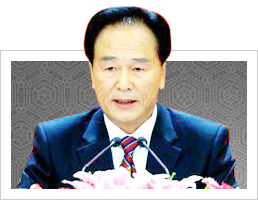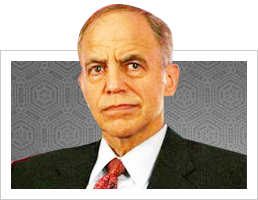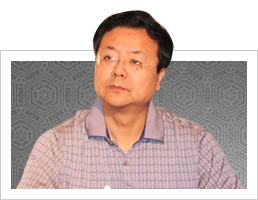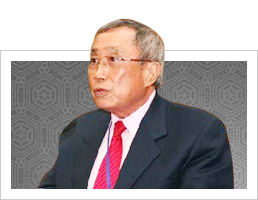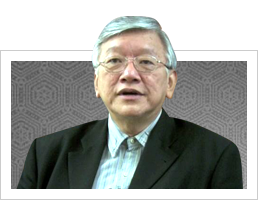World dialogue on the Chinese Dream
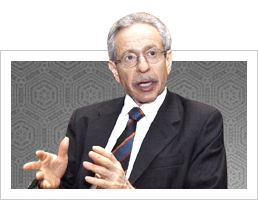
Dr. Robert Lawrence Kuhn, author of How China’s Leaders Think and the biography of former President Jiang Zemin, has long-term relationships with China’s leaders and the Chinese government.
Ever since CPC General Secretary Xi Jinping announced The Chinese Dream, shortly after his ascension to China’s highest political position in November 2012, The Chinese Dream has stirred hopes and high expectations on the one hand and has provoked questions and wonder on the other. What is clear is that The Chinese Dream has become a high-level organizing principle for President Xi’s leadership, and it is from this grand overarching vision that our conference, World Dialogue on the Chinese Dream, takes its significance.
Many at home and abroad have offered opinions on what The Chinese Dream is, or what it should be, or what it should not be. Chinese scholars and China’s Western critics may differ in their opinions—even among themselves—but they are allied in recognizing the importance of The Chinese Dream and therefore analyzing it.
I will not here suggest which elements of The Chinese Dream are more relevant than others or how its diverse facets may interact. My objective, rather, is to suggest a theoretical framework for The Chinese Dream by arraying its content or applications and organizing them into categories and subcategories. I call the results a “taxonomy,’ using as an analogy the order or structure that scientists impose on the biological world for the purpose of understanding it better.
As such, my objective is limited. I do not seek so much to explain The Chinese Dream as to provide the categories of which it is composed. This may help others to offer descriptive or prescriptive analysis in a coherent and integrated manner. I would like to see the size and scope of the landscape that The Chinese Dream covers. I would like to answer the foreign critics’ charge that The Chinese Dream is vague and sloganeering.
I would like to ground The Chinese Dream in a way of thinking that is both theoretically sound and pragmatically applicable. A framework for The Chinese Dream may facilitate a way of thinking, a methodology, to determine what follows from these categories. Though I do not claim that there is anything special about the specific taxonomy I present, I do suggest that the process of developing a taxonomy, irrespective of its specific structure, can help elucidate The Chinese Dream.
In the taxonomy I propose, I have five high-level categories with which to describe and analyze The Chinese Dream: national, personal, historical, global and antithetical. For each I suggest subcategories. Then I show how the remarkable Third Plenary of the 18th CPC Central Committee reinforces The Chinese Dream.
Connotations of Chinese Dream
Inspired by the Chinese Dream, more and more people have begun to chase their own dreams, including dreams to receive better education, start businesses, purchase homes and get rich. People firmly believe that as long as they work hard, their dreams would come true. [more]
Chinese dream and China's governance
A great deal will depend on how Xi Jinping will actually implement the core features of the program he has laid out and how he will seek to create incentives and constituencies to support his programmatic goals.In sum, President Xi has now made very clear where he stands and where he wants the country to go under his leadership, and he has achieved wide-ranging endorsement of this overall program. [more]
Chinese Dream includes strong PLA
The PLA as a pillar of State security follows the trend of the times and follows a principle that is different from colonial aggression and expansion. And China firmly believes in the principles of peace, cooperation and development of military ties with other countries. [more]
The Chinese dream and peaceful development
The most difficult issue in the region now is the the relationship between China and Japan regarding overlapping claims on the Diaoyu, or Senkaku, islands group. The problem is residual from World War II, and the historical part of the issues is complicated. That is why Japan PM Abe’s revisionist statement on World War II and its impact does not help. [more]
The year of Chinese Dream
Distinct from the American Dream, the Chinese Dream cannot be a narrative of pure newness. It is the imagining of a better future with the memory of 4,000 years of history, a movement of renaissance expressed in the vision of "civilizational China". [more]
Defeat challenges, realize Chinese Dream
High economic growth in recent decades may have made China more confident of realizing the Chinese Dream, but the country's new leaders face serious challenges that could hamper their efforts to realize the goal.First and foremost is the need to fight widespread corruption. Making this his main priority, President Xi warned that corruption could lead to "the collapse of the Party and the downfall of the State". [more]
World dialogue on the Chinese Dream
The “Personal Chinese Dream” focuses on the well-being of individual Chinese citizens and thus modifies traditional notions of the primacy of the collective over the individual. The dream of the Personal is balanced with the dream of the National. In fact, the fulfillment of The Personal Chinese Dream constitutes a good part of what it means to fulfill the National Chinese Dream. [more]
Making a nation's dream come true
Promoting Chinese concepts in the rest of the world is not very difficult - stop translating key Chinese terminologies (at best, give the appropriate or closest meaning and continue with the Chinese terminology). If kung fu, wushu, rujia, shengren, junzi can be understood and accepted by the outside, why not zhongguo meng? Once you translate a Chinese term you give away the definition of thought. [more]

